
About IFPRI
Our vision: A world free of hunger and malnutrition.
Jordi Ruiz Cirera/Panos
Our mission is to provide research-based policy solutions that sustainably reduce poverty and end hunger and malnutrition.
What we do
Established in 1975, the International Food Policy Research Institute provides research-based policy solutions to sustainably reduce poverty and end hunger and malnutrition in developing countries. Together with our partners, we generate needed evidence for country- and region-led policies that contribute to poverty reduction and help ensure that all people have access to safe, sufficient, nutritious, and sustainably produced food. Through multisectoral research and engagement with stakeholders, IFPRI informs effective policies, programs, and investments that contribute to productive livelihoods and sustainable, resilient, and equitable agriculture and food systems.
IFPRI is a Research Center of CGIAR, the world’s largest agricultural innovation network, and the only CGIAR center solely dedicated to food policy research. The Institute currently has more than 590 employees from around the world working in over 80 countries, with about half of our research staff based in developing countries.
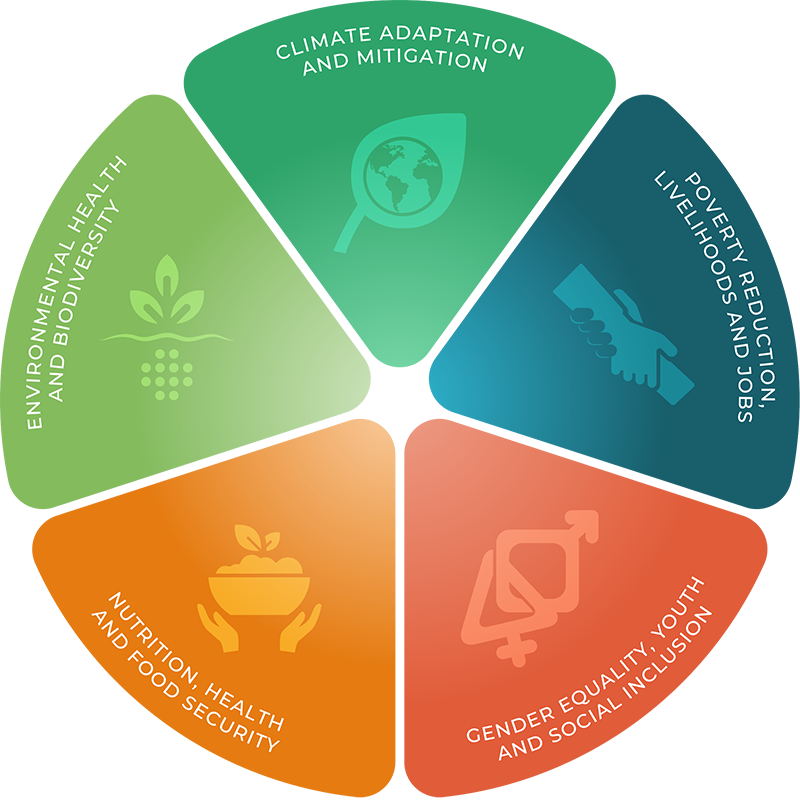
IFPRI’s research aims to achieve progress in CGIAR’s five impact areas: nutrition, health, and food security; poverty reduction, livelihoods, and jobs; environmental health and biodiversity; gender equality, youth, and social inclusion; and climate adaptation and mitigation. To address challenges in these areas, IFPRI’s experts work with partners around the world to identify, assess, improve, and adapt policy, institutional, and governance responses that can drive transformative change.
Our research and engagement address the complex challenges to sustainable, equitable food systems through a three-pronged approach:
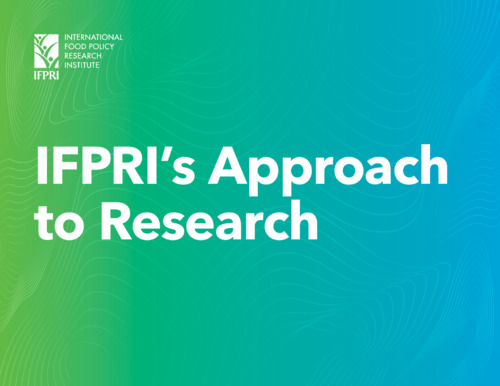
Brochure
IFPRI’s approach to research
2025International Food Policy Research Institute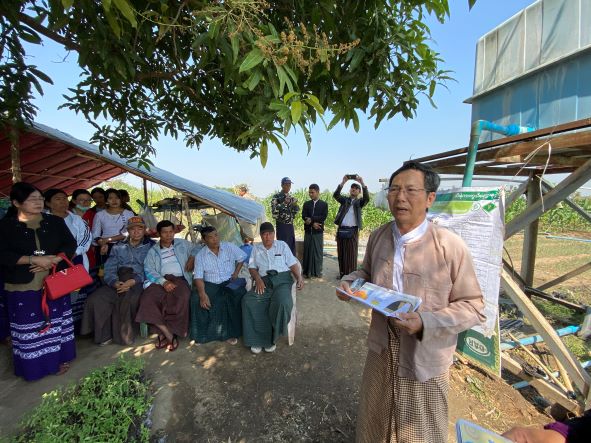
1. Clarifying the situation and outlook
IFPRI provides foresight and policy modeling on food system trends and future scenarios, conducts ex ante assessments of potential policy pathways and investments, and develops metrics and frameworks to analyze and monitor impacts on the poorest and most marginal populations.
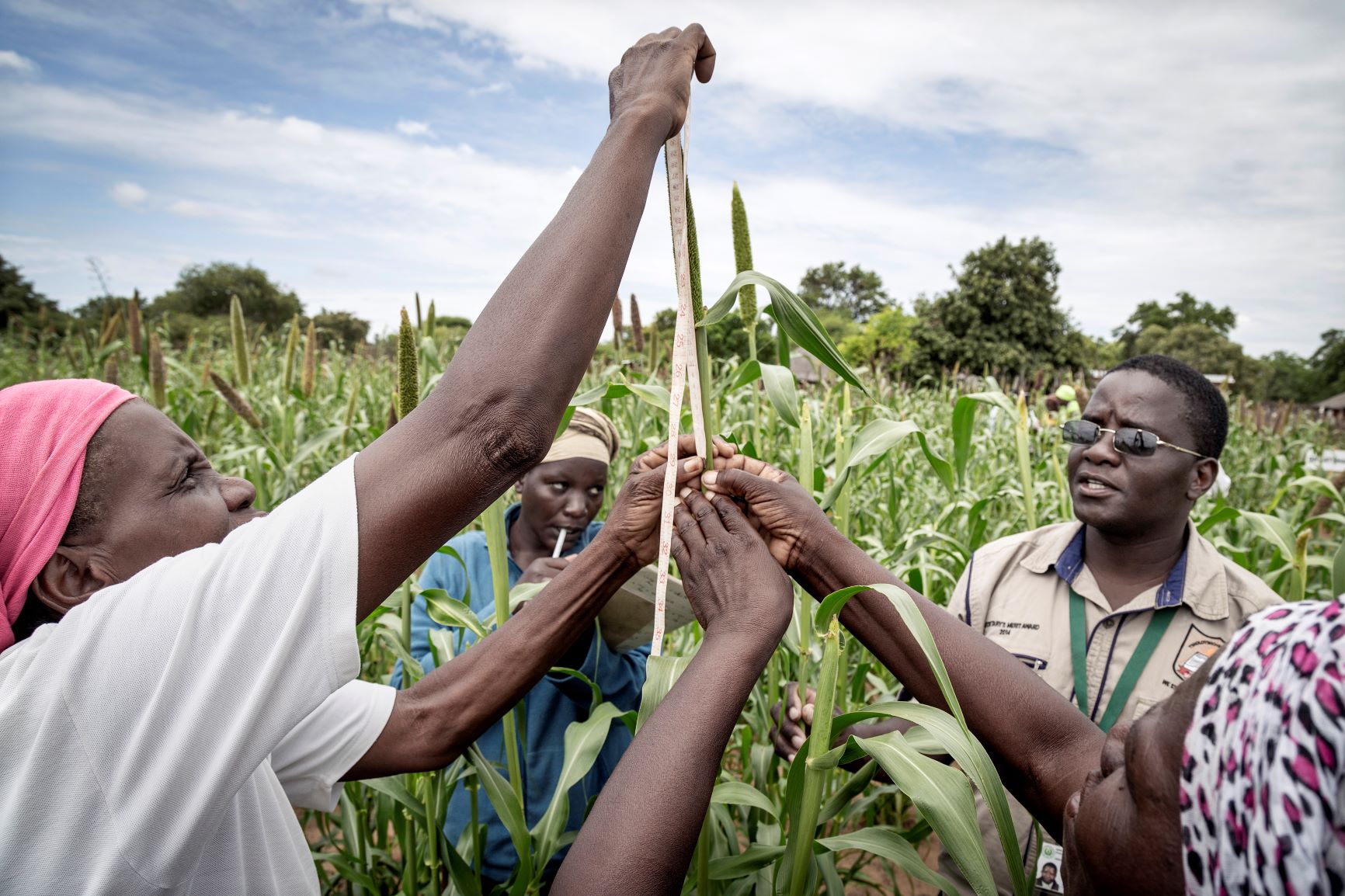
2. Testing and scaling solutions
Together with partners, IFPRI identifies, develops, and assesses promising policy, institutional, governance, and behavioral change innovations and technologies for sustainable, equitable food systems transformation. IFPRI also assesses alternative pathways for delivery and scaling up of sustainable food systems solutions, with a focus on improving livelihoods, well-being, equity, and inclusion.
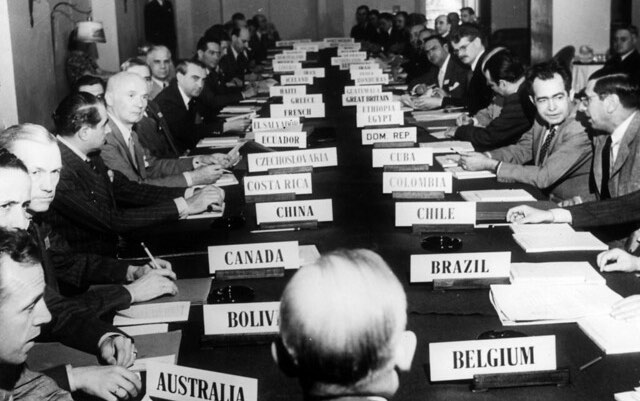
3. Shaping enabling environments
IFPRI explores and advises on enabling governance environments at the local, national, and international levels to facilitate and incentivize innovative solutions and investments in sustainable food systems transformation from the public and private sector, civil society organizations, and individuals.
IFPRI implements this work through seven research units focused on: development strategies and governance; foresight and policy modeling; innovation policy and scaling; markets, trade, and institutions; natural resources and resilience; nutrition, diets, and health; and poverty, gender, and inclusion.
IFPRI’s researchers work across a range of disciplines and with a wide array of local and national partners in developing countries, as well as research, scaling, advocacy, and funding partners, to provide rigorous, policy-relevant evidence and recommendations to policymakers, donors, the private sector, and civil society. Our regional and country programs in Africa, Asia, and Latin America respond to national demand for holistic food policy research and strengthen local research and policy analysis capacity.
By informing better policy decisions, agenda setting, and investments in sustainable equitable food systems, IFPRI’s research has contributed to policies and programs that benefit millions around the world.
IFPRI is a nonprofit corporation incorporated in the District of Columbia in 1975. It is classified by the Internal Revenue Service as a charitable organization under Section 501(c)(3). It is not a branch, division, or agency of the United States government. In 1982, IFPRI was granted recognition as an international organization solely for U.S. tax and immigration purposes.
Contact
Director General:
Johan Swinnen
Headquarters:
1201 Eye Street, NW
Washington, DC 20005, USA


